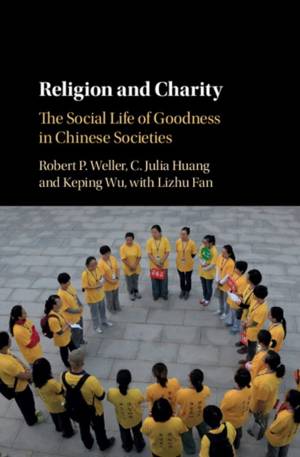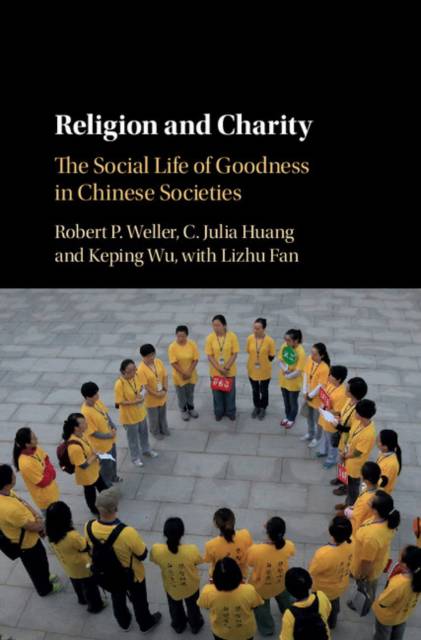
Je cadeautjes zeker op tijd in huis hebben voor de feestdagen? Kom langs in onze winkels en vind het perfecte geschenk!
- Afhalen na 1 uur in een winkel met voorraad
- Gratis thuislevering in België vanaf € 30
- Ruim aanbod met 7 miljoen producten
Je cadeautjes zeker op tijd in huis hebben voor de feestdagen? Kom langs in onze winkels en vind het perfecte geschenk!
- Afhalen na 1 uur in een winkel met voorraad
- Gratis thuislevering in België vanaf € 30
- Ruim aanbod met 7 miljoen producten
Zoeken
Religion and Charity
The Social Life of Goodness in Chinese Societies
Robert P Weller, C Julia Huang, Keping Wu
Hardcover | Engels
€ 183,45
+ 366 punten
Omschrijving
Free markets alone do not work effectively to solve certain kinds of human problems, such as education, old age care, or disaster relief. Nor have markets ever been the sole solution to the psychological challenges of death, suffering, or injustice. Instead, we find a major role for the non-market institutions of society - the family, the state, and social institutions. The first in-depth anthropological study of charities in contemporary Chinese societies, this book focuses on the unique ways that religious groups have helped to solve the problems of social well-being. Using comparative case studies in China, Taiwan and Malaysia during the 1980s and onwards, it identifies new forms of religious philanthropy as well as new ideas of social 'good', including different forms of political merit-making, new forms of civic selfhood, and the rise of innovative social forms, including increased leadership by women. The book finally argues that the spread of these ideas is an incomplete process, with many alternative notions of goodness continuing to be influential.
Specificaties
Betrokkenen
- Auteur(s):
- Uitgeverij:
Inhoud
- Aantal bladzijden:
- 246
- Taal:
- Engels
Eigenschappen
- Productcode (EAN):
- 9781108418676
- Verschijningsdatum:
- 26/10/2017
- Uitvoering:
- Hardcover
- Formaat:
- Genaaid
- Afmetingen:
- 157 mm x 229 mm
- Gewicht:
- 358 g

Alleen bij Standaard Boekhandel
+ 366 punten op je klantenkaart van Standaard Boekhandel
Beoordelingen
We publiceren alleen reviews die voldoen aan de voorwaarden voor reviews. Bekijk onze voorwaarden voor reviews.









